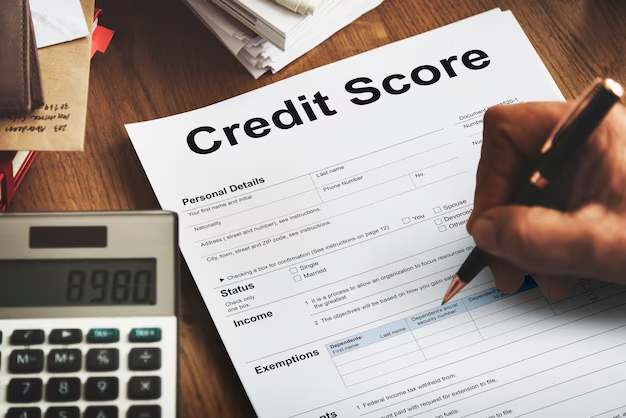Your credit score plays a vital role in determining your eligibility for a loan, the interest rate you’ll receive, and the terms of your loan agreement. This three-digit number provides lenders with insight into your financial habits, helping them assess the risk of lending money to you. Understanding how your credit score impacts loan approval can empower you to make better financial decisions and improve your chances of securing favorable loan terms.
What Is a Credit Score?

A credit score is a numerical representation of your creditworthiness, typically ranging from 300 to 850. It is calculated based on your credit history and financial behaviors, such as paying bills on time, managing credit card balances, and the length of your credit history.
Factors Affecting Your Credit Score:
- Payment History (35%): Timely payments positively impact your score, while late or missed payments lower it.
- Credit Utilization (30%): The percentage of your available credit in use—keeping it below 30% is ideal.
- Length of Credit History (15%): A longer history of responsible credit use boosts your score.
- Credit Mix (10%): A variety of credit types, such as credit cards, auto loans, and mortgages, positively influences your score.
- New Credit (10%): Frequent applications for new credit can lower your score temporarily.
Why Do Lenders Care About Your Credit Score?
Lenders use credit scores to evaluate the likelihood of repayment. A higher credit score indicates responsible financial behavior, reducing the lender’s risk. Conversely, a lower score signals a higher risk of default, which may lead lenders to deny your application or charge higher interest rates.
Key Insights for Lenders:
- Risk Assessment: A good credit score suggests you are less likely to miss payments or default on the loan.
- Loan Terms: Borrowers with excellent credit often qualify for lower interest rates and better repayment terms.
- Loan Approval Speed: A high score can expedite loan approval processes, as it reassures lenders of your reliability.
How Your Credit Score Affects Loan Approval
1. Determines Loan Eligibility
- Good Credit (700–850): Most likely to get approved for loans with favorable terms.
- Fair Credit (650–699): Eligible for loans, but may face higher interest rates.
- Poor Credit (300–649): Difficulty getting approved; often limited to loans with unfavorable terms or secured loans requiring collateral.
2. Impacts Interest Rates
Your credit score directly influences the interest rate you’re offered. A higher score means lower interest rates, which translates to significant savings over the life of the loan.
Example:
- Borrower A (Credit Score: 750): Offered a 5% interest rate.
- Borrower B (Credit Score: 600): Offered a 15% interest rate.
3. Affects Loan Limits
A strong credit score increases the likelihood of being approved for higher loan amounts. Borrowers with lower scores may face restrictions on how much they can borrow.
4. Determines Loan Type
- Unsecured Loans: Require high credit scores, as they lack collateral.
- Secured Loans: Available to borrowers with lower scores, but require assets as collateral.
5. Influences Approval Time
A higher credit score often results in quicker approvals, as lenders require fewer verifications. Conversely, a lower score may lead to delays as lenders scrutinize your financial history.
How to Improve Your Credit Score for Loan Approval
1. Pay Bills on Time
- Set up automatic payments or reminders to avoid late payments.
2. Reduce Credit Card Balances
- Aim to keep your credit utilization ratio below 30% of your credit limit.
3. Avoid Applying for Multiple Loans Simultaneously
- Each application triggers a hard inquiry, which can temporarily lower your score.
4. Check Your Credit Report for Errors
- Review your report regularly for inaccuracies and dispute any errors promptly.
5. Build a Positive Credit History
- Maintain long-term accounts and diversify your credit mix responsibly.
Conclusion
Your credit score is a powerful financial tool that can make or break your chances of getting approved for a loan. By understanding how it affects loan approval, interest rates, and repayment terms, you can take proactive steps to improve your credit profile and secure better financial opportunities. Whether you’re planning to apply for a mortgage, car loan, or personal loan, maintaining a strong credit score ensures you’ll receive favorable terms and conditions.
FAQs
1. What credit score is needed to get approved for a loan?
The minimum score varies by lender and loan type. Generally:
- 700+ for favorable terms.
- 650–699 for average terms.
- Below 650 may require secured loans or higher interest rates.
2. Can I get a loan with bad credit?
Yes, but expect higher interest rates and stricter terms. Consider improving your score or applying for a secured loan.
3. How does a hard inquiry affect my credit score?
Each hard inquiry can lower your score by 5–10 points temporarily. Limit the number of applications to avoid significant impacts.
4. How long does it take to improve a credit score?
Improvements can take a few months to a year, depending on your financial habits and the severity of past issues.
5. Do all lenders consider credit scores?
Most traditional lenders do, but some, like payday loan providers or no-credit-check lenders, evaluate other factors, such as income and employment history.


